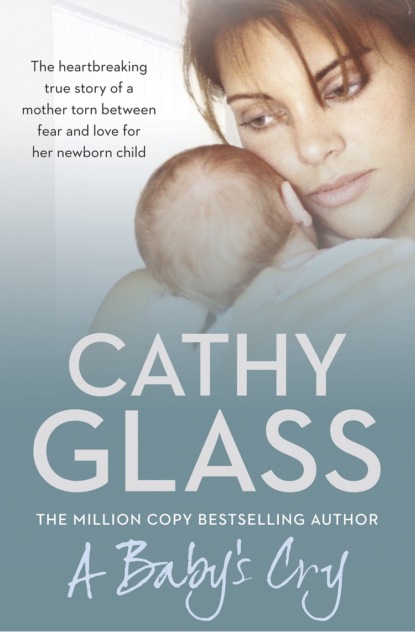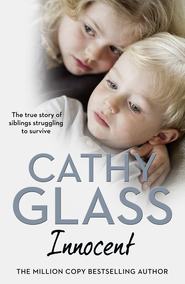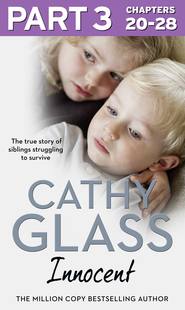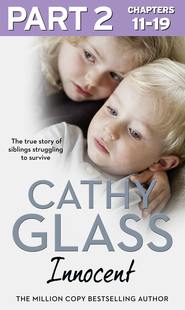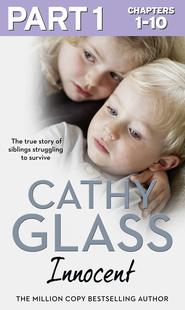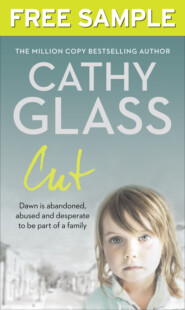По всем вопросам обращайтесь на: info@litportal.ru
(©) 2003-2024.
✖
A Baby’s Cry
Настройки чтения
Размер шрифта
Высота строк
Поля
It went quiet for a moment and I thought she’d gone away. Then as I was about to press the button again her voice said: ‘Come through,’ and the door clicked open.
I went in and then down a short corridor, which opened on to the ward. It was a long traditional-style ward with a row of beds either side, each one separated by a curtain and bedside cabinet. Beside each bed was a hospital crib with a baby. I glanced anxiously around and then a nurse came over.
‘Mrs Glass?’
‘Yes.’ I showed her my ID card.
She nodded. ‘You’ve come for Harrison.’
‘Yes.’
‘This way.’
My mouth went dry as I followed the nurse down the centre of the ward. Other mothers were resting on their beds or standing by the cribs tending to their babies; some glanced up as we passed. The ward was very warm and surprisingly quiet, with only one baby crying. There was a joyous atmosphere, with baby congratulation cards strung over bed heads, although I imagined this was in contrast to how Harrison’s mother must be feeling.
‘He’s over here, so we can keep an eye on him,’ the nurse said, leading me to the last bed on the right, which was closest to the nurses’ station.
The curtain was pulled back and my eyes went first to the crib containing Harrison and then to the empty bed beside it. ‘Is Harrison’s mother here?’ I asked.
‘No. She left half an hour ago, as soon as she was discharged.’
A mixture of relief and disappointment flooded through me. Relief that what could have been a very awkward and upsetting meeting had been avoided, but disappointment that I hadn’t had the opportunity to reassure her I would take good care of her baby. And I guess I’d been curious too, for I knew so little about Harrison’s mother or background.
‘He’s a lovely little chap,’ the nurse said, standing by the crib and gazing down at him. ‘Feeding and sleeping just as a baby should.’
My heart melted as I joined the nurse beside the crib and looked down at Harrison. He was swaddled in a white blanket with just his little face visible from beneath a small white hat. His tiny features were perfect and his light brown skin was flawless. His eyes were closed but one little fist was pressed to his chin as though he was deep in thought.
‘He’s a beautiful baby,’ I said. ‘Absolutely beautiful. He looks very healthy. How much does he weigh?’
‘He was seven pounds two ounces at birth,’ the nurse said. ‘That’s three thousand two hundred and thirty-one grams. The social worker phoned and said to tell you she will bring the paperwork when she visits you later in the week.’ I nodded and gazed down again at Harrison as the nurse continued: ‘And the health visitor will see you in the next few days and bring Harrison’s red book.’ (The red book is a record of the baby’s health and development and is known as the red book simply because the book is bound in red.)
‘Thank you,’ I said.
‘Oh yes, and Mum has left some things for Harrison,’ the nurse said, pointing to a grey trolley case standing on the floor by the bed. ‘Rihanna wasn’t sure what you would need.’
‘Rihanna is Harrison’s mother’s name?’ I asked.
‘Yes, she’s a lovely lady. Why isn’t she keeping her baby?’ The nurse looked at me as though she thought I would know, while I was surprised she didn’t know.
‘I’ve no idea,’ I said. ‘I haven’t any details. I don’t even know Harrison’s surname.’
‘It’s Smith,’ the nurse said. ‘Which I understand is his father’s surname.’
‘Was the father here?’
‘Oh no,’ the nurse said, again surprised I didn’t know. ‘Rihanna wouldn’t allow any visitors.’
I looked at her, even more puzzled and intrigued, as a woman in a bed behind us called ‘Nurse!’ The nurse turned and said, ‘I’ll be with you in a minute, Mrs Wilson.’ Then to me: ‘Well, good luck. Do you need any help getting to the car?’
‘No. I’ll be fine.’
The nurse watched me as I set the carry car seat and my handbag on the floor and turned to the crib. ‘When was he last fed?’ I asked as I leant forward, ready to pick up Harrison.
‘Rihanna fed and changed him before she left, so he’ll be fine for a couple of hours.’
‘Thanks,’ I said. I gently tucked my hands under Harrison’s tiny form and picked him up. ‘Is this blanket his?’ I asked, for it was similar to those the other babies had on their cots.
‘Yes. Mum brought it in, and the clothes he’s wearing.’ I saw Harrison was dressed in a light blue sleepsuit similar to the ones I’d bought from Mothercare.
I lowered Harrison carefully into the carry car seat as the nurse left to attend to the other mother. His little face puckered at being moved but he didn’t wake or cry. He was so cute, my heart melted. I gently fastened the safety harness and then tucked the blanket loosely over him. His little fist came up to his chin but he obligingly stayed asleep.
Straightening, I looped my handbag over my shoulder, took the handle of the trolley case in one hand and the carry car seat in the other, and began slowly down the ward towards the exit. A few mothers looked up as I passed; it must have seemed strange for them to see me arrive alone and then leave with a baby. I wondered if Rihanna had spoken to any of the other mothers on the ward; I’d made lasting friendships when I’d been in hospital having Adrian and Paula, but somehow I didn’t think that would be so for Rihanna. The nurse had said Rihanna had refused to allow visitors, and the secrecy surrounding her and Harrison led me to believe that for whatever reason Rihanna was very alone in the world, as indeed was her son.
I left the building and carefully made my way across the hospital car park, all the while glancing at Harrison, whose little eyes were screwed shut against the light.
‘We’ll be home soon,’ I whispered as we arrived at the car.
I unlocked the car, and then leaning into the back carefully placed the carry car seat into position. I strapped it securely into place with the seatbelt. Harrison’s bottom lip gave a little sucking motion as babies often do but he stayed asleep. I checked that all the straps were secure and then stood for a moment looking at Harrison, completely overawed. The responsibility hit me. Here I was solely in charge of this tiny newborn baby, who would be relying on me – a stranger – for everything he needed: for life itself. The responsibility of any parent is enormous but as a foster carer it seemed even greater – being responsible for someone else’s child – and I hoped I was capable of the task.
Quietly closing the car door so I wouldn’t wake him, I stowed the trolley case and my handbag in the boot, then went round and climbed into the driver’s seat. That was the worst part over with, I told myself, the bit I’d been dreading. I was pleased I’d collected Harrison and there’d been no upsetting scene; and shortly I would be home and looking after him. What I didn’t know then was that in collecting Harrison I had begun a very upsetting and traumatic journey that would often reduce me to tears. For now I was simply one very proud foster mother of a darling little baby boy.
Chapter Four
Bonding
Harrison slept peacefully during the car ride home and didn’t wake until I pulled on to the drive and cut the engine. When the soporific motion of the car stopped he gave one little whimper and then his brow furrowed as though he was trying to make sense of what was going on around him.
‘It’s OK, love,’ I soothed gently, as I got out and then opened the rear door. ‘We’re home now.’
Releasing the belt that held his car seat in place I carefully lifted out the seat and closed the door. I held the handle of the seat with one hand while I opened the boot with the other. I took out the bags and trolley case and then pressed the fob to lock the car. In the porch I stood the trolley case to one side while I opened the front door, now remembering that two hands are not enough when you have a baby. Harrison gave another little cry, louder this time, so I guessed he was starting to feel hungry. Leaving the bags in the hall I carried him in the seat through to the kitchen and stood it safely on the floor to one side. I knew it wasn’t recommended to leave a baby asleep for long periods in one of these seats – they’re bad for the baby’s spine, as they are curled slightly forward and not flat – so once I’d fed Harrison I would tuck him into his pram, where he could lie flat.
I took one of the sterilized bottles from the sterilizing unit and, using water I’d previously boiled and following the instructions on the packet of formula (which I’d also read earlier), I carefully made up the milk. Although I’d breastfed both my children I’d also used formula milk for Adrian, as he’d been a big baby who’d been constantly hungry. It occurred to me how different this homecoming was from when I’d arrived home with Adrian and Paula: John, my husband, had collected me from hospital and my parents had been waiting at home to welcome me and help with their new grandchild. Now there was just Harrison and me, and that seemed to highlight how alone Harrison was in the world.
Feeling rather clever that I’d made up the bottle of formula without any mishaps I carefully lifted Harrison from the car seat and carried him through to the sitting room to feed him. I sat on the sofa and gently laid him in the crook of my left arm and then put the teat of the bottle to his lips. Obligingly, he immediately opened his mouth, latched on to the teat and began sucking hungrily. I relaxed back a little on the sofa and looked at him in my arms as he fed. I’d forgotten how all-consuming feeding is for a newborn baby – it occupies and takes over their whole body. Harrison’s eyes were closed in concentration, and as he gulped down the warm milk little muscles in his face twitched with delight, while his fists and feet flexed open and closed in contentment. For a baby feeding is what matters most in the whole wide world and their life revolves around it.
As Harrison fed I could feel the warmth of his little body pressed against mine; likewise he would be able to feel the comfort of my body. The close bodily contact between a mother and baby, especially during feeding, is vital to the bonding process. I wondered how Harrison’s mother had felt when she’d fed Harrison for the last time before she’d left the hospital; when she’d gazed down at her son knowing that once she’d fed and changed him and returned him to the crib she would never touch or feel him again. It was so very, very sad and I found it impossible to imagine.
Harrison gulped down half the milk in the bottle and then suddenly stopped, pulled a face and spat out the teat. I wondered if he might need winding before he took the rest of the bottle, so I gently raised him into a sitting position and, supporting his chin with my right hand, I began gently rubbing his back with the palm of my left hand. His little white hat had slipped to one side and I took it off; it was warm in the house. Harrison had beautiful hair – a fine dark down covered most of his head, which made him look older than a newborn. After a moment of being winded he burped and a small rivulet of milk trickled from the corner of his mouth and on to his sleepsuit. I now realized I’d forgotten to bring in a bib with me. I carefully stood and carried Harrison into the kitchen, where I took one of the bibs I’d bought from the drawer, and then tore off a strip of kitchen towel and wiped the milk from his mouth and the sleepsuit. Returning to the sofa I lay Harrison in my left arm again and, tucking the bib under his chin, gave him the rest of the bottle.
Toscha, our cat, sauntered in, clearly curious, having let herself in through the cat flap. She miaowed, as she always did when she first saw either the children or me, and then rubbed herself around my legs. ‘Good girl,’ I said. ‘This is Harrison.’ But I would make sure Toscha was kept well away from Harrison, for much as we loved her I knew it was dangerous and unhygienic to allow animals near young babies. Toscha gave another little miaow and wandered off, her curiosity satisfied.
Now the bottle of milk was finished I wondered if Harrison might need a change of nappy, so I stood to go upstairs, where the changing mat, nappies and creams were – in the spare bedroom. But before I got to the sitting-room door the phone rang. I returned to the sofa and picked up the handset from the corner unit.
‘Hello?’
‘How’s the little man doing?’ Jill asked. She was phoning from her mobile; I could hear traffic in the background.
‘Great,’ I said. ‘He’s in my arms now. I’ve fed him; he’s taken all the bottle, and now I’m going to change him.’
Другие электронные книги автора Cathy Glass
Innocent




 0
0





